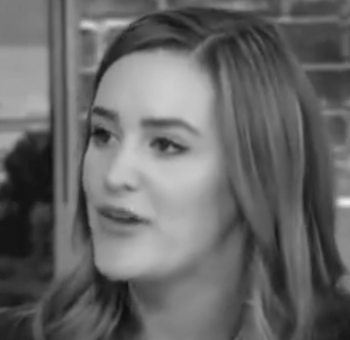Expelled male student sues college for faulty rape trial
The accused student recently launched a lawsuit against Amherst for denying him due process and ignoring key evidence that supported his innocence.
A male student who received oral sex from a female friend while he was blacked out was expelled from Amherst College two years later when the woman accused him of sexually assaulting her.
A male student accused of sexual assault and subsequently expelled by administrators at Amherst College recently sued the school for denying him due process and ignoring key evidence substantiating his claims of innocence.
In February 2012, the male student—identified as “John Doe”—escorted his girlfriend’s roommate, identified as Sandra Jones, back to her residence hall where Jones then performed oral sex on him. Doe alleges that he was blacked out during the encounter.
Roughly two years after the incident occurred, the female student accused Doe of sexually assaulting her and the school launched its own investigation. Doe was forced to partake in a school-led rape trial absent of any legal representation and eventually expelled after a panel of students and administrators found him ‘guilty.’
According to the legal filing, the school’s trial took place “during a period of relentless and well-publicized accusations against Amherst for failing to protect female students from sexual assault.”
“[T]he College was under intense pressure to demonstrate that it was now willing and capable of prosecuting sexual assailants,” the document explains.
During the school’s trial, Jones said she texted a friend to console her after Doe left. However, an attorney hired by Doe after his expulsion introduced evidence to discredit those claims.
Instead of requesting her friend’s help, as claimed, text messages show the following conversation occurred between the accuser and a female friend—identified as “DR” in legal filings—immediately after the incident:
Jones: Ohmygod I jus did something so fuckig stupid
DR: What did you do
Jones: Fucked [Doe]... FUCK
DR: No you didn’t…
Jones: Official story is he puked and I took care of him but yes. Yes I did. FUCK
DR: [Jones] what are you doing????????
Jones: Oh and apparently [ML]s coming over so nothing happened everything’s fine
“ML” is a male friend who Jones invited over the same night, after Doe had left her room. Text messages depict a flirtatious exchange between Jones and ML in which the alleged victim urged the male student to “come over and entertain me.” References to this conversation were allegedly omitted during the school’s trial.
According to Doe’s attorneys, Jones filed her complaint against Doe nearly two years after the event, at the urging of an on-campus victim’s advocate and member of Amherst’s Special Oversight Committee on Sexual Misconduct. The same school official later acted as a witness against Doe during the school’s investigation.
Since reviewing the case and lawsuit, K.C. Johnson—who co-wrote Until Proven Innocent: Political Correctness and the Shameful Injustices of the Duke Lacrosse Rape Case—has described Amherst’s procedures as “wildly one-sided.”
“While the accuser waited 21 months to file her charges, Doe received ten days before he met with the investigator,” Johnson wrote in a recent blog post.
Doe was expelled 38 days after being notified of Jones’ accusations against him. He was forbidden from having an attorney represent him during the school’s hearing and prohibited from cross-examining his accuser. Johnson also reveals that the faculty adviser assigned to Jones during the hearing had previously served as Amherst’s “diversity czar” and delivered a presentation on victims’ rights after the school became the subject of scrutiny for its treatment of a rape victim in 2012. However, the school maintains that the faculty members assigned to Doe and Jones were objective advisers, not advocates for either student.
Johnson describes the text messages obtained by Doe’s attorney as having “all but eviscerated [Jones’] credibility.” Despite that evidence, the lawsuit alleges that Amherst administrators declined to reopen the case against Doe and reevaluate its decision to expel him.
According to legal documents, Doe “presented the affidavits and attached text messages to [Amherst]... and he requested that he be reinstated or that the matter be reopened.”
“Amherst has refused to reopen either the hearing or the investigation [and] upon information and belief, it has not even asked Sandra Jones to respond to the new evidence,” states the document. “It has no legitimate explanation or justification for its refusal.”
Doe’s lawsuit charges Amherst and Jones with a combination of 10 counts, including negligent and intentional infliction of emotional distress, defamation, and breach of contract, among other complaints.
Peter Mackey, a spokesperson for the college, recently told the Boston Globe that the school acted fairly in its investigation and expulsion of Doe.
“We are confident that the process the college followed was appropriate and that the court will conclude that the College’s process was fair,” Mackey told the Globe.
Johnson disagreed and described the college’s handling of Doe’s case as “kafkaesque.”
"Once again: this is a case in which an accuser (to put it charitably) misrepresented written evidence vital to her credibility, and this same material, her words, showed—if anything—that she initiated sexual contact against a student who even Amherst's panel described as 'blacked out,” Johnson wrote. “And yet, according to Amherst, [the accuser] is a sexual assault 'survivor.'"
Follow Gabriella Morrongiello on Facebook.

